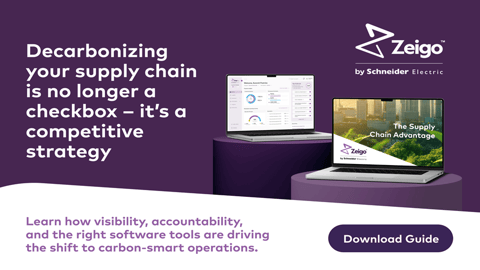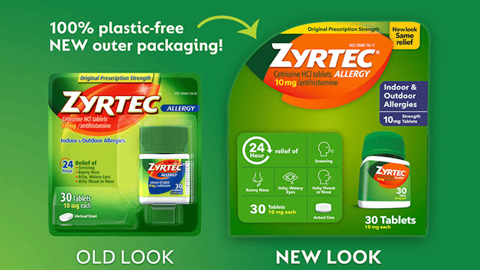PepsiCo and Keurig Dr Pepper Step Up Sustainability Game, Tackle Water Waste
March 22 marked World Water Day, and to commemorate the holiday PepsiCo and Keurig Dr Pepper announced their respective goals to reduce water waste across their value chains.
The highlights? PepsiCo has committed to developing technology that will recover more than 50% of the water used in its potato chip manufacturing, as well as scale drip irrigation tech across 25,000 acres by 2025. As part of its PepsiCo Positive (pep+) initiative to be net water positive by 2030, the company expanded safe water access to 8 million more people in 2021. Meanwhile, Keurig Dr Pepper has set a goal to achieve net positive water impact by 2050.
[Related: Despite Skepticism, Consumers Want Brands To Have Greener Packaging: GlobalData]
Here’s a breakdown of their initiatives:
PepsiCo
The company has launched several sustainability programs, particularly following its "Net Water Positive" announcement in August 2021. PepsiCo plans to expand these proposals:
- Recover more than 50% of the water used in potato chip manufacturing using a condensing process
- Invest nearly $2 million in two partnerships to help advance its Net Water Positive goals in the Colorado River Basin
- Make a founding investment in the Colorado River Basin Fund, a $5 million "future of water" venture capital fund focused on incubating tech that addresses water scarcity
- Provide safe water access to approximately 68 million people, with a goal of reaching 100 million by 2030
- Commit to an additional $500,000 from the PepsiCo foundation to improve water access and sanitation services across Latin America
- Grant $1 million to WaterAid to support construction of water supply and sanitation facilities that promote good hygiene practices
- Pilot N-Drip technology in India, Vietnam, and the U.S. to enable high-pressure drip irrigation while conserving energy, minimizing maintenance, and improving access to farmers
PepsiCo plans to expand the water condensation program to nearly 30 potato chip manufacturing plants in high-water areas over the next seven years.
By constructing a mile-long channel to bypass the Windy Gap Reservoir, the Colorado River Basin initiative is predicted to restore perennial flows throughout the river, create 18 acres of new wetlands, restore 50 acres of riverside habitat, and replenish an estimated 380 million gallons of water annually.
To continue advancing the safe water access goal, the foundation is granting $1.5 million over three years to two new water stewardship programs in Latin America and Nigeria.
"PepsiCo has just nine years to reach our ambitious 2030 Net Water Positive goals, so there is no time to waste," said Jim Andrew, chief sustainability officer at PepsiCo. "We're taking a look at our full value chain, from top to bottom, and asking, how can we leverage the innovation and creativity that exists within our company to ensure that the water resources PepsiCo uses are better off a decade from now than they are today?"
Keurig Dr Pepper
KDP is focusing on replenishment, building on existing efforts.
- Replenish 100% of water used for its beverages in its highest water-risk operating communities by 2030
- Improve water use efficiency in its operations by 20% by 2025
- Support regenerative agriculture and conservation on 250,000 acres of land by 2030, representing 50% of the land used to grow KDP's top climate-sensitive crops
The company has joined the Water Resilience Coalition — an industry-driven coalition launched as part of the UN Global Compact CEO Water Mandate — that aims to move water stress and its impact on global warming to the top of the corporate agenda and preserve the Earth’s freshwater resources.
The brand is also a member of several other coalitions, including the Beverage Industry Environmental Roundtable, the California Water Action Collaborative, and the Texas Water Action Collaborative.
"As a beverage company dependent on water at all levels of our value chain, we have a unique opportunity to develop and support leading solutions to local and global water challenges. We are excited to join the WRC and, through collective action, scale the work we have underway to build healthy communities resilient to climate change," said Bob Gamgort, chairman and CEO of Keurig Dr Pepper.
Sustainability Efforts Across the Industry
Water conservation is just a segment of the sustainability efforts CPG companies are undertaking in order to offset their carbon footprint and bring to market earth-friendly products. KDP, for example, is also piloting compostable paper bottles.
[Related: 10 CGs Ranked ‘Most Sustainable' in 2022]
Among the latest entrants are Coca-Cola, which is committing to offer 25% of all beverages in reusable bottles by 2030. Other companies like Goldenberry Sourcing and Mentos are reducing plastic usage in their packaging. Meanwhile other companies like Coty are focusing on production, testing varying processes like carbon-captured ethanol to reduce water waste and lessen their carbon footprint.






